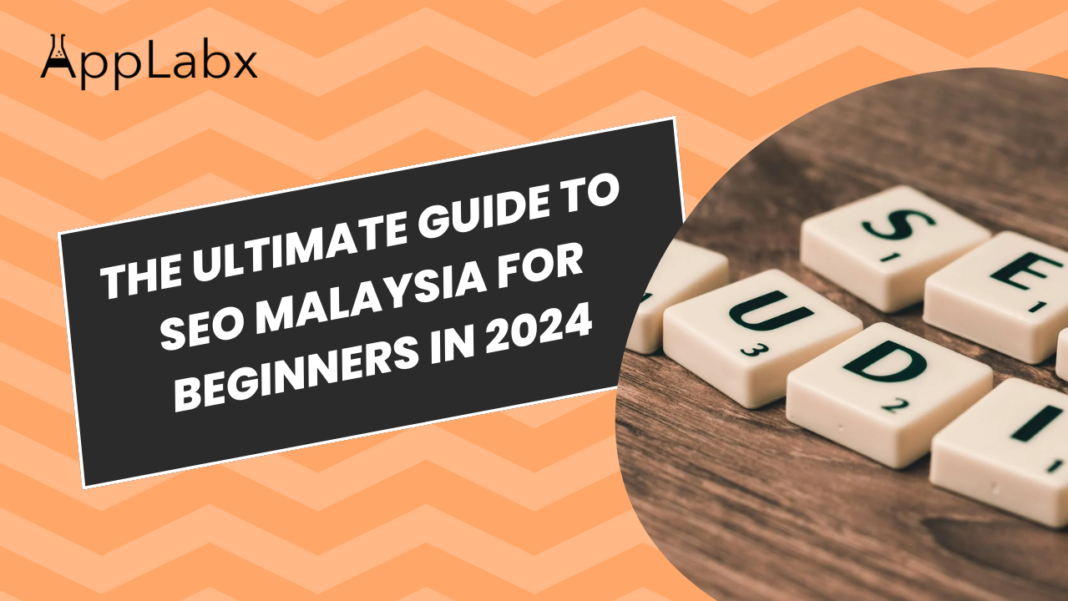Key Takeaways
- Keyword Research: Master the art of keyword research to identify relevant terms and phrases that resonate with your Malaysian audience, driving targeted traffic to your website.
- Local SEO Optimization: Harness the power of local SEO tactics to enhance your visibility in Malaysian search results, attracting customers from your geographic area and boosting your business’s online presence.
- Continuous Learning: Stay updated on the latest SEO trends and best practices to adapt to the evolving digital landscape in Malaysia, ensuring long-term success and sustainable growth for your website.
In the vast digital landscape of Malaysia, where online businesses thrive amidst fierce competition, mastering the art of Search Engine Optimization (SEO) has become not just a choice but a necessity for those seeking prominence and success.
As we venture deeper into the digital age of 2024, the significance of SEO has only magnified, making it imperative for businesses, both big and small, to understand and harness its power effectively.
Welcome to “The Ultimate Guide to SEO Malaysia for Beginners in 2024” – your roadmap to navigating the dynamic world of SEO tailored specifically to the Malaysian market.
In this comprehensive guide, we embark on a journey to demystify the complexities of SEO, equipping you with the knowledge and tools necessary to propel your online presence to new heights.
Whether you’re a budding entrepreneur looking to establish your digital footprint or a seasoned marketer seeking to refine your strategies, this guide is designed to cater to all levels of expertise, providing actionable insights and expert advice every step of the way.
Before we delve into the intricacies of SEO optimization, let’s take a moment to understand why it holds unparalleled significance in today’s digital landscape.
As the internet continues to evolve into the primary avenue for information discovery and commerce, search engines like Google, Bing, and Yahoo have emerged as the gatekeepers of online visibility.
Every day, millions of Malaysians turn to these search engines to find products, services, and solutions to their queries, making search engine rankings a coveted battleground for businesses vying for consumer attention.
Now, you might be wondering, what exactly is SEO, and why does it matter for businesses operating in Malaysia?
Simply put, SEO encompasses a set of strategies and techniques aimed at optimizing your website to improve its visibility and ranking on search engine results pages (SERPs).
By aligning your online presence with the ever-changing algorithms of search engines, you can enhance your chances of appearing at the top of relevant search queries, driving organic traffic to your website and, ultimately, boosting conversions and revenue.
However, mastering SEO is no easy feat, especially in a diverse and dynamic market like Malaysia.
With its unique cultural nuances, linguistic diversity, and rapidly evolving digital landscape, Malaysia presents both challenges and opportunities for businesses looking to leverage the power of SEO.
From understanding local search intent to navigating the intricacies of multilingual SEO, there are countless factors to consider when optimizing your online presence for the Malaysian audience.
But fear not, for this guide is here to serve as your beacon of light amidst the SEO wilderness.
Over the following chapters, we will delve deep into the fundamentals of SEO, exploring everything from keyword research and on-page optimization to off-page strategies and technical SEO essentials.
Along the way, we’ll uncover the latest trends and best practices shaping the SEO landscape in Malaysia, equipping you with the knowledge and tools necessary to stay ahead of the curve.
So, whether you’re a fledgling entrepreneur looking to carve out your niche in the digital realm or an established business seeking to reignite your online presence, buckle up and get ready to embark on a transformative journey into the world of SEO Malaysia.
Together, we’ll unlock the secrets to online success and pave the way for a brighter, more prosperous future in the digital age. Let’s dive in.
Before we venture further, we like to share who we are and our digital experiences.
About AppLabx
From developing a solid marketing plan to creating compelling content, optimizing for search engines, leveraging social media, and utilizing paid advertising, AppLabx offers a comprehensive suite of digital marketing services designed to drive growth and profitability for your business.
AppLabx is well known for helping companies and startups use Brand Marketing to drive traffic to their websites and web apps.
At AppLabx, we understand that no two businesses are alike. That’s why we take a personalized approach to every project, working closely with our clients to understand their unique needs and goals, and developing customized strategies to help them achieve success.
If you need a digital consultation, then send in an inquiry here.
The Ultimate Guide to SEO Malaysia for Beginners in 2024
- Understanding SEO Basics
- Current SEO Trends in Malaysia
- Keyword Research Strategies
- On-Page Optimization Techniques
- Off-Page Optimization Strategies
- Technical SEO Essentials
- Local SEO for Malaysian Businesses
- Measuring and Analyzing SEO Performance
- SEO Tips and Best Practices for Malaysian Beginners
1. Understanding SEO Basics
In the digital realm, understanding the fundamental principles of Search Engine Optimization (SEO) is paramount to achieving online success.
In this section, we’ll delve into the core concepts of SEO, demystifying its complexities and providing actionable insights to help you lay a solid foundation for your SEO journey.

What is SEO?
- Definition: SEO, or Search Engine Optimization, refers to the practice of optimizing your website and its content to improve its visibility and ranking on search engine results pages (SERPs).
- Purpose: The primary goal of SEO is to increase organic (non-paid) traffic to your website by enhancing its relevance and authority in the eyes of search engines.
How Search Engines Work
- Crawling and Indexing: Search engines employ automated bots, known as crawlers or spiders, to scour the web and discover new content. Once discovered, the content is indexed, allowing it to be retrieved and displayed in response to user queries.
- Example: When you publish a new blog post on your website, search engine crawlers visit your site, index the content, and make it searchable to users.
- Ranking Algorithms: Search engines use complex algorithms to determine the relevance and authority of web pages, ranking them accordingly in search results.
- Example: Google’s PageRank algorithm evaluates factors such as backlinks, content quality, and user engagement to determine the ranking of web pages in its search results.
Key Components of SEO
- On-Page Optimization
- Content Quality: Creating high-quality, relevant content is essential for on-page SEO. Content should be informative, engaging, and tailored to meet the needs of your target audience.
- Example: A Malaysian e-commerce store selling traditional batik clothing may create blog posts showcasing different batik designs and their cultural significance.
- Keyword Optimization: Incorporating relevant keywords into your content helps search engines understand the topic of your page and improves its chances of ranking for related queries.
- Example: A Malaysian restaurant in Kuala Lumpur may optimize its website content with keywords such as “authentic Malaysian cuisine” and “best restaurants in KL”.
- Content Quality: Creating high-quality, relevant content is essential for on-page SEO. Content should be informative, engaging, and tailored to meet the needs of your target audience.
- Off-Page Optimization
- Backlinks: Acquiring high-quality backlinks from reputable websites is crucial for off-page SEO. Backlinks serve as votes of confidence from other sites, indicating the authority and relevance of your content.
- Example: A Malaysian travel blogger may collaborate with tourism websites and influencers to earn backlinks to their blog posts about travel destinations in Malaysia.
- Social Signals: Engaging with your audience on social media platforms can indirectly impact your website’s SEO by increasing brand visibility and driving traffic.
- Example: A Malaysian fashion brand may share its latest collections on Instagram and Facebook, encouraging followers to visit its website to make purchases.
- Backlinks: Acquiring high-quality backlinks from reputable websites is crucial for off-page SEO. Backlinks serve as votes of confidence from other sites, indicating the authority and relevance of your content.
- Technical Optimization
- Site Structure: Ensuring your website has a clear and intuitive structure makes it easier for search engine crawlers to navigate and index its pages.
- Example: A Malaysian news website may organize its content into categories such as politics, business, and entertainment, with each category accessible from the main navigation menu.
- Mobile-Friendliness: With the increasing use of smartphones and tablets, optimizing your website for mobile devices is essential for SEO success.
- Example: A Malaysian hotel booking platform may use responsive design techniques to ensure its website provides a seamless user experience across desktop and mobile devices.
- Site Structure: Ensuring your website has a clear and intuitive structure makes it easier for search engine crawlers to navigate and index its pages.
By understanding and implementing these key components of SEO, you can improve your website’s visibility and attract more organic traffic from search engines.
In the following sections, we’ll delve deeper into each aspect of SEO, providing actionable tips and best practices to help you optimize your online presence effectively.
2. Current SEO Trends in Malaysia
Staying abreast of the latest SEO trends is essential for businesses operating in Malaysia to maintain their competitive edge and maximize their online visibility.
In this section, we’ll explore the evolving landscape of SEO in Malaysia, highlighting key trends and best practices shaping the industry in 2024.

Voice Search Optimization
- Increasing Adoption: With the proliferation of voice-enabled devices and virtual assistants like Google Assistant and Siri, voice search has become increasingly popular among Malaysian consumers.
- Example: A Malaysian restaurant may optimize its website content to answer common voice search queries, such as “Where can I find the best nasi lemak in Kuala Lumpur?”
- Natural Language Processing: Optimizing content for natural language queries can improve its chances of appearing in voice search results.
- Example: A Malaysian travel agency may create blog posts with conversational titles and content, such as “What are the top tourist attractions in Penang?”
E-E-A-T (Expertise, Experience, Authoritativeness, Trustworthiness)
- Focus on Quality Content: Google’s emphasis on E-E-A-T highlights the importance of creating high-quality, authoritative content that demonstrates expertise and builds trust with users.
- Example: A Malaysian healthcare website may publish articles written by medical professionals and supported by reputable sources to establish expertise and authority in the field.
- Building Trust Signals: Incorporating trust signals such as testimonials, reviews, and secure HTTPS connections can enhance your website’s trustworthiness in the eyes of both users and search engines.
- Example: A Malaysian e-commerce platform may display customer reviews and ratings prominently on product pages to instill confidence in potential buyers.
Video Content Optimization
- Rising Popularity: Video content continues to gain traction as a preferred medium for consuming information online, presenting opportunities for businesses to leverage video SEO.
- Example: A Malaysian cooking school may create video tutorials showcasing traditional Malaysian recipes, optimizing the videos with relevant keywords and metadata.
- YouTube SEO: Optimizing video content for YouTube, the second largest search engine, can help Malaysian businesses reach a wider audience and drive traffic to their websites.
- Example: A Malaysian beauty brand may create makeup tutorial videos featuring its products, optimizing the video titles, descriptions, and tags with relevant keywords.
Local SEO Focus
- Growing Importance: With the increasing prevalence of “near me” searches, optimizing for local SEO has become essential for Malaysian businesses, especially those with physical locations.
- Example: A Malaysian café may optimize its Google My Business listing with accurate business information, including opening hours, address, and customer reviews.
- Google Maps Optimization: Ensuring accurate and consistent information across online directories and mapping platforms can improve your business’s visibility in local search results.
- Example: A Malaysian boutique hotel may optimize its Google Maps listing with high-quality photos, detailed descriptions, and positive reviews to attract more local customers.
Core Web Vitals and User Experience
- Page Experience Update: Google’s Core Web Vitals update prioritizes user experience metrics such as page speed, mobile-friendliness, and interactivity.
- Example: A Malaysian news website may optimize its page loading speed and mobile responsiveness to provide a seamless browsing experience for users on all devices.
- Mobile Optimization: With the majority of Malaysians accessing the internet via smartphones, optimizing your website for mobile devices is critical for SEO success.
- Example: A Malaysian online retailer may implement responsive design and mobile-friendly navigation to enhance the user experience and reduce bounce rates on mobile devices.
By embracing these current SEO trends and incorporating them into your digital marketing strategy, you can position your business for success in the competitive landscape of Malaysia’s online marketplace.
In the following sections, we’ll delve deeper into specific strategies and techniques to help you capitalize on these trends and drive measurable results for your business.
3. Keyword Research Strategies
Keyword research is the cornerstone of any successful SEO strategy, providing insights into the search behavior of your target audience and guiding the optimization of your website content.
In this section, we’ll explore effective keyword research strategies tailored specifically for businesses operating in Malaysia.
Understand Your Audience
- Demographic Analysis: Conduct research to understand the demographics and preferences of your target audience in Malaysia, including factors such as age, gender, location, and interests.
- Example: A Malaysian fashion brand targeting young urban professionals may focus on keywords related to trendy clothing styles and affordable fashion options.
- Localized Keywords: Identify keywords that are specific to Malaysia or relevant to local Malaysian culture, customs, and trends.
- Example: A Malaysian travel agency may target keywords such as “best places to visit in Malaysia” or “Malaysia travel tips” to attract tourists searching for information about local attractions.

Leverage Keyword Research Tools
- Google Keyword Planner: Utilize Google’s Keyword Planner tool to discover relevant keywords, analyze search volume trends, and identify potential opportunities for optimization.
- Example: A Malaysian technology blog may use Keyword Planner to find popular search terms related to the latest gadgets and tech reviews.
- SEMrush: Leverage SEMrush to conduct competitor analysis, identify top-performing keywords in your industry, and uncover long-tail keyword opportunities.
- Example: A Malaysian food delivery service may use SEMrush to analyze competitor websites and identify keywords with high search volume and low competition, such as “halal food delivery Kuala Lumpur”.
Focus on Long-Tail Keywords
- Specificity: Long-tail keywords are longer and more specific phrases that typically have lower search volume but higher conversion potential.
- Example: Instead of targeting a broad keyword like “restaurant”, a Malaysian café may focus on long-tail keywords such as “vegetarian café in Petaling Jaya” to attract customers with specific dietary preferences.
- Intent: Long-tail keywords often reflect user intent more accurately, allowing you to tailor your content to meet the needs and preferences of your target audience.
- Example: A Malaysian interior design firm may target long-tail keywords like “minimalist condo design ideas” or “modern kitchen renovation tips” to attract homeowners seeking specific design inspiration.
Analyze Search Intent
- Informational Queries: Identify keywords with informational intent, where users are seeking answers to questions or seeking knowledge on a particular topic.
- Example: A Malaysian health and wellness blog may target informational keywords such as “how to stay fit during Ramadan” or “benefits of traditional Malay herbs”.
- Transactional Queries: Target keywords with transactional intent, where users are ready to make a purchase or engage with a product or service.
- Example: A Malaysian online bookstore may optimize for transactional keywords such as “buy books online Malaysia” or “discounted novels for sale”.
Monitor and Refine Your Keywords
- Regular Review: Continuously monitor the performance of your chosen keywords using analytics tools and adjust your strategy based on changes in search trends and user behavior.
- Example: A Malaysian e-commerce platform may regularly review keyword performance metrics such as search volume, click-through rate (CTR), and conversion rate to identify opportunities for optimization.
- Competitor Analysis: Keep an eye on your competitors’ keyword strategies and identify gaps or areas of opportunity that you can capitalize on.
- Example: A Malaysian digital marketing agency may analyze competitor websites and identify keywords that are driving traffic to their competitors’ sites, then incorporate those keywords into their own SEO strategy.
By employing these keyword research strategies tailored to the Malaysian market, you can effectively identify and target relevant keywords that will enhance your website’s visibility, attract qualified traffic, and drive conversions.
In the subsequent sections, we’ll delve deeper into the implementation of these keywords within your website content and optimization efforts.
4. On-Page Optimization Techniques
On-page optimization plays a crucial role in improving the visibility and relevance of your website’s content to search engines.
By implementing effective on-page optimization techniques, you can enhance your website’s ranking in search engine results pages (SERPs) and attract more organic traffic.
In this section, we’ll explore a variety of on-page optimization strategies tailored for businesses operating in Malaysia.
Create SEO-Friendly Content
- Quality Content: Develop high-quality, informative content that addresses the needs and interests of your target audience in Malaysia.
- Example: A Malaysian travel agency may create detailed guides and articles highlighting popular tourist destinations, cultural events, and travel tips for visitors to Malaysia.
- Keyword Optimization: Incorporate relevant keywords naturally into your content, including in headings, subheadings, meta tags, and throughout the body of the text.
- Example: An online Malaysian marketplace selling handmade crafts may optimize product descriptions with keywords such as “Malaysian batik handbags” or “traditional handicrafts for sale”.
Optimize Meta Tags and Descriptions
- Title Tags: Craft descriptive and compelling title tags that accurately reflect the content of your web pages and include relevant keywords.
- Example: A Malaysian food blog may use title tags like “Authentic Malaysian Recipes: Discover the Flavors of Malaysia” to attract users searching for traditional Malaysian dishes.
- Meta Descriptions: Write concise and persuasive meta descriptions that summarize the content of your pages and entice users to click through to your website.
- Example: A Malaysian boutique hotel may create meta descriptions that highlight its unique amenities and attractions, such as “Experience Luxury Accommodations in the Heart of Kuala Lumpur”.
Improve Website Structure and Navigation
- Logical Hierarchy: Organize your website content into a logical hierarchy with clear navigation paths to help both users and search engines understand the structure of your site.
- Example: A Malaysian online fashion retailer may categorize products by type (e.g., clothing, accessories) and further subdivide them by gender, size, and style.
- Internal Linking: Incorporate internal links within your content to connect related pages and guide users to explore more of your website.
- Example: A Malaysian lifestyle blog may include internal links in its articles to direct readers to related blog posts, product reviews, or resources.
Mobile Optimization Considerations
- Responsive Design: Ensure your website is mobile-friendly and responsive, with content that adapts seamlessly to different screen sizes and devices.
- Example: A Malaysian restaurant’s website may use responsive design techniques to provide a user-friendly experience for customers browsing menus and making reservations on their smartphones.
- Page Speed Optimization: Optimize your website’s loading speed for mobile devices by minimizing file sizes, leveraging browser caching, and optimizing images and multimedia content.
- Example: A Malaysian e-commerce platform may compress product images and streamline checkout processes to reduce loading times and improve the mobile shopping experience.
Implement Structured Data Markup
- Schema Markup: Incorporate structured data markup, such as Schema.org vocabulary, to provide search engines with additional context about your content and enhance its visibility in SERPs.
- Example: A Malaysian events website may use schema markup to provide details about upcoming concerts, festivals, and cultural events, including dates, venues, and ticket prices.
- Rich Snippets: Markup specific types of content to enable rich snippets in search results, such as star ratings, reviews, and event listings, which can increase click-through rates and visibility.
- Example: A Malaysian recipe blog may use schema markup to display recipe ratings, cooking times, and calorie counts in search engine results, making its recipes more appealing to users.
By implementing these on-page optimization techniques tailored to the Malaysian market, you can improve your website’s visibility, relevance, and user experience, ultimately driving more organic traffic and achieving your SEO goals.
In the subsequent sections, we’ll explore additional off-page optimization strategies and technical SEO essentials to further enhance your website’s performance in search results.
5. Off-Page Optimization Strategies
Off-page optimization plays a crucial role in enhancing the authority, credibility, and visibility of your website in search engine results pages (SERPs).
By implementing effective off-page optimization strategies, you can attract high-quality backlinks, increase brand awareness, and improve your website’s overall SEO performance.
In this section, we’ll explore a variety of off-page optimization techniques tailored for businesses operating in Malaysia.
Build High-Quality Backlinks
- Guest Blogging: Contribute high-quality guest posts to reputable websites and blogs in your industry or niche, including backlinks to relevant pages on your website.
- Example: A Malaysian tech startup may write guest articles for leading technology publications, linking back to its website to showcase its expertise and products.
- Resource Link Building: Create valuable resources, such as guides, infographics, and tools, and promote them to influencers, bloggers, and webmasters to earn backlinks.
- Example: A Malaysian finance website may create an interactive budgeting tool and outreach to personal finance bloggers and influencers to feature it on their websites with attribution.

Foster Social Media Engagement
- Shareable Content: Create compelling and shareable content that resonates with your target audience and encourages social sharing and engagement.
- Example: A Malaysian beauty brand may create tutorial videos showcasing makeup tips and techniques, encouraging followers to share them on social media platforms like Instagram and Facebook.
- Influencer Partnerships: Collaborate with Malaysian influencers and thought leaders in your industry to amplify your brand reach and attract new followers and customers.
- Example: A Malaysian fitness apparel brand may partner with popular Malaysian fitness influencers to promote its products and exclusive discounts to their followers.
Participate in Local Directories and Listings
- Google My Business: Optimize your Google My Business listing with accurate business information, including your address, phone number, website URL, and business hours.
- Example: A Malaysian restaurant may update its Google My Business profile with its current menu, photos of dishes, and customer reviews to attract local customers searching for dining options.
- Local Directories: Submit your business to reputable local directories and review platforms in Malaysia, such as Yellow Pages, Yelp, and Tripadvisor, to improve your online visibility and reputation.
- Example: A Malaysian boutique hotel may list its property on local travel directories and accommodation booking platforms, providing detailed information about its amenities, room rates, and customer reviews.
Monitor Brand Mentions and Reviews
- Brand Monitoring: Use tools like Google Alerts or social media monitoring tools to track mentions of your brand name, products, or services online.
- Example: A Malaysian electronics retailer may set up Google Alerts for its brand name and product names to monitor online discussions and reviews about its products.
- Review Management: Respond promptly and professionally to customer reviews and feedback on review platforms, social media, and other online channels to build trust and credibility.
- Example: A Malaysian e-commerce platform may thank customers for positive reviews and address any concerns or issues raised in negative reviews, demonstrating its commitment to customer satisfaction.
Engage in Community Outreach and Sponsorships
- Community Events: Sponsor or participate in local events, charity drives, and community initiatives to increase brand visibility and goodwill.
- Example: A Malaysian eco-friendly fashion brand may sponsor a beach cleanup event or collaborate with local environmental organizations to raise awareness about sustainable fashion practices.
- Educational Workshops: Host workshops, seminars, or webinars related to your industry or niche to position your brand as an authority and engage with your target audience.
- Example: A Malaysian digital marketing agency may organize free workshops on SEO best practices for local businesses, attracting attendees interested in improving their online visibility and marketing strategies.
By incorporating these off-page optimization strategies into your digital marketing efforts, you can strengthen your website’s authority, credibility, and relevance in the eyes of both users and search engines.
In the subsequent sections, we’ll explore additional technical SEO essentials and local SEO tactics to further enhance your website’s performance and visibility in Malaysia’s competitive online landscape.
6. Technical SEO Essentials
Technical SEO encompasses a range of optimizations that focus on improving the backend structure and performance of your website, ensuring it is both user-friendly and search engine-friendly.
By addressing technical aspects such as site speed, crawling, and indexing, you can enhance your website’s visibility, accessibility, and overall SEO performance.
In this section, we’ll explore a variety of technical SEO essentials tailored for businesses operating in Malaysia.
Optimize Site Speed
- Page Loading Time: Ensure your website loads quickly on both desktop and mobile devices to provide a positive user experience and avoid high bounce rates.
- Example: A Malaysian online retailer may optimize product images and minimize HTTP requests to improve page loading speed and reduce abandonment rates during the checkout process.
- Mobile Optimization: Prioritize mobile optimization to cater to the increasing number of users accessing the internet via smartphones and tablets in Malaysia.
- Example: A Malaysian news website may implement Accelerated Mobile Pages (AMP) to deliver faster-loading articles and improve the mobile reading experience for users.

Ensure Mobile-Friendliness
- Responsive Design: Implement responsive web design techniques to ensure your website adapts seamlessly to different screen sizes and devices.
- Example: A Malaysian travel agency may use responsive design principles to optimize its website for mobile users, providing easy navigation and booking functionality on smartphones.
- Mobile Usability: Test your website’s mobile usability using tools like Google’s Mobile-Friendly Test to identify and fix any issues that may impact the user experience on mobile devices.
- Example: A Malaysian restaurant may ensure its mobile website allows users to easily view menus, make reservations, and find directions to the restaurant’s location without encountering usability issues.
Implement HTTPS Security
- SSL Certificate: Secure your website with an SSL certificate to encrypt data transmitted between your server and users’ browsers, providing a secure browsing experience.
- Example: A Malaysian e-commerce platform may install an SSL certificate to encrypt sensitive customer information, such as payment details and personal data, during online transactions.
- SEO Benefits: HTTPS is a ranking factor in Google’s algorithm, and websites with HTTPS encryption may receive a slight boost in search rankings compared to non-secure websites.
- Example: A Malaysian financial institution may prioritize HTTPS security to reassure customers that their online banking transactions and personal information are protected from potential security threats.
Optimize Site Structure and Navigation
- Clear Hierarchy: Organize your website’s content into a logical hierarchy with clear navigation menus and internal linking structures to facilitate easy navigation for users and search engines.
- Example: A Malaysian real estate website may categorize properties by location, type, and price range, allowing users to quickly find relevant listings based on their preferences.
- XML Sitemap: Create and submit an XML sitemap to search engines to ensure all pages of your website are discovered and indexed efficiently.
- Example: A Malaysian tourism website may generate an XML sitemap containing URLs for various attractions, accommodations, and travel guides to help search engines crawl and index its content effectively.
Schema Markup Implementation
- Structured Data: Implement schema markup using Schema.org vocabulary to provide search engines with additional context about your website’s content, enabling rich snippets in search results.
- Example: A Malaysian recipe blog may use schema markup to mark up recipes with structured data, including information about ingredients, cooking times, and nutritional facts.
- Rich Snippets: Markup specific types of content, such as reviews, ratings, and events, to enhance your website’s visibility in search results and attract more clicks from users.
- Example: A Malaysian hotel may use schema markup to display star ratings, guest reviews, and room availability directly in search engine results, increasing the likelihood of users clicking through to the hotel’s website.
By focusing on these technical SEO essentials tailored for the Malaysian market, you can improve your website’s performance, accessibility, and visibility in search engine results pages (SERPs).
In the subsequent sections, we’ll delve into additional local SEO tactics and strategies to further enhance your website’s presence and relevance for Malaysian users.
7. Local SEO for Malaysian Businesses
Local SEO is crucial for Malaysian businesses aiming to attract customers within their geographical area.
By optimizing your online presence for local search, you can increase your visibility in Google Maps, local search results, and mobile searches, driving more foot traffic and conversions to your physical location.
Below, we’ll delve into various local SEO strategies tailored specifically for businesses operating in Malaysia.

Understanding Local Search Intent
- Localized Keywords: Target keywords containing location-specific terms relevant to your business and target audience in Malaysia.
- Example: A Malaysian bakery in Kuala Lumpur may optimize for keywords like “best bakery in KL” or “artisan bread shop in Kuala Lumpur”.
- Local Search Queries: Identify common local search queries that Malaysian users are likely to use when seeking products or services in their area.
- Example: A Malaysian car wash service may optimize for search queries such as “car wash near me” or “auto detailing in Selangor”.
Optimizing Google My Business Listing
- Complete Profile: Ensure your Google My Business (GMB) profile is complete and accurate, including business name, address, phone number, website URL, and operating hours.
- Example: A Malaysian spa may update its GMB listing with detailed descriptions of its services, photos of its facilities, and customer reviews to attract local clients.
- Local Citations: Consistently maintain and update your business information across local directories, review sites, and online platforms to enhance your local search visibility.
- Example: A Malaysian café may ensure its business information is consistent across platforms like Foursquare, TripAdvisor, and local food blogs.
Getting Listed in Local Directories
- Malaysian Directories: Submit your business to local directories and listing platforms that cater specifically to Malaysian users.
- Example: A Malaysian furniture store may list its business on directories like Yellow Pages Malaysia, iProperty, and Malaysia Business Directory.
- Industry-Specific Directories: Identify industry-specific directories and platforms relevant to your business niche in Malaysia.
- Example: A Malaysian photography studio specializing in weddings may list its services on wedding directories like Bridalgram and MalaysiaBrides.com.
Encouraging Local Reviews and Testimonials
- Positive Reviews: Encourage satisfied customers to leave positive reviews and testimonials on your Google My Business listing and other review platforms.
- Example: A Malaysian restaurant may offer discounts or freebies to customers who leave positive reviews on platforms like Google and TripAdvisor.
- Responding to Reviews: Monitor and respond promptly to both positive and negative reviews to show your commitment to customer satisfaction.
- Example: A Malaysian hotel may thank guests for positive reviews and address any concerns mentioned in negative reviews to demonstrate responsiveness and professionalism.
Creating Local Content and Events
- Local Blog Posts: Produce blog posts and articles that focus on local events, attractions, and news relevant to your Malaysian audience.
- Example: A Malaysian travel agency may publish blog posts featuring insider tips, travel guides, and itineraries for popular destinations like Penang and Malacca.
- Hosting Local Events: Organize or sponsor local events, workshops, or community initiatives to engage with your target audience and strengthen your brand presence.
- Example: A Malaysian bookstore may host book signings, reading sessions, or literary festivals to attract book enthusiasts and promote its offerings.
Optimizing for Voice Search and Mobile
- Voice Search Optimization: Optimize your website content for voice search queries by using natural language and conversational keywords.
- Example: A Malaysian florist may optimize for voice search queries like “flower delivery near me” or “best florist in Johor Bahru”.
- Mobile-Friendly Experience: Ensure your website is mobile-friendly and provides a seamless browsing experience for users on smartphones and tablets.
- Example: A Malaysian hair salon may optimize its website for mobile devices, allowing clients to easily book appointments and view services on their smartphones.
Implementing these local SEO strategies tailored for Malaysian businesses can significantly improve your online visibility, attract more local customers, and drive foot traffic to your physical location.
In the subsequent sections, we’ll explore additional SEO tips and best practices to further optimize your website and drive sustainable growth for your business in Malaysia.
8. Measuring and Analyzing SEO Performance
Measuring and analyzing SEO performance is essential for understanding the effectiveness of your optimization efforts and identifying areas for improvement.
By tracking key metrics and using analytical tools, you can gain valuable insights into your website’s visibility, traffic, and conversion rates.
In this section, we’ll explore various methods and tools for measuring and analyzing SEO performance, along with relevant examples.
Key Performance Indicators (KPIs)
- Organic Traffic: Monitor the amount of traffic coming to your website from organic search results to assess the effectiveness of your SEO efforts.
- Example: A Malaysian e-commerce website may track the number of visitors landing on its product pages from organic search to evaluate the impact of SEO on sales.
- Keyword Rankings: Keep track of your website’s rankings for target keywords to gauge its visibility in search engine results pages (SERPs).
- Example: A Malaysian digital marketing agency may use rank tracking tools to monitor the rankings of client websites for specific keywords related to their industry or niche.
- Conversion Rates: Measure the percentage of visitors who take desired actions on your website, such as making a purchase or filling out a contact form, to assess the effectiveness of your SEO in driving conversions.
- Example: A Malaysian law firm may track the conversion rate of website visitors who fill out a consultation request form to evaluate the ROI of its SEO efforts in generating leads.
Google Analytics
- Traffic Sources: Use Google Analytics to analyze the sources of traffic to your website, including organic search, direct traffic, referral traffic, and social media traffic.
- Example: A Malaysian blog may use Google Analytics to compare the performance of organic search traffic to traffic from social media platforms like Facebook and Instagram.
- Behavior Flow: Analyze the behavior flow of website visitors to understand how they navigate through your site and identify potential bottlenecks or areas for improvement.
- Example: A Malaysian travel website may use behavior flow reports to identify pages with high bounce rates and optimize them for better engagement and conversions.
Google Search Console
- Search Queries: Review the search queries report in Google Search Console to see which keywords are driving impressions and clicks to your website.
- Example: A Malaysian real estate agency may use the search queries report to identify long-tail keywords related to property searches in specific locations.
- Index Coverage: Monitor the index coverage report in Google Search Console to identify any indexing issues or errors that may be affecting your website’s visibility in search results.
- Example: A Malaysian e-commerce store may use the index coverage report to identify and fix pages that are not being indexed properly, such as product pages with duplicate content.
Backlink Analysis
- Backlink Profile: Analyze your website’s backlink profile using tools like Ahrefs or Moz to identify the quantity and quality of backlinks pointing to your site.
- Example: A Malaysian digital publication may use backlink analysis to identify authoritative websites linking to its articles and develop outreach strategies to acquire more high-quality backlinks.
- Competitor Analysis: Compare your backlink profile to that of your competitors to identify potential link building opportunities and areas where you may be falling behind.
- Example: A Malaysian software company may analyze the backlink profiles of its competitors to identify industry-specific directories and websites for link acquisition.
User Engagement Metrics
- Bounce Rate: Monitor the bounce rate of your website to assess the percentage of visitors who navigate away from your site after viewing only one page.
- Example: A Malaysian restaurant may monitor its website’s bounce rate to identify pages with high exit rates and optimize them to keep visitors engaged.
- Average Session Duration: Track the average session duration to understand how long visitors are spending on your website and which pages are attracting the most engagement.
- Example: A Malaysian tourism website may track the average session duration to identify popular destinations or attractions that are generating high levels of user interest.
Local SEO Performance Metrics
- Local Pack Rankings: Monitor your website’s rankings in the local pack, the prominent map-based results displayed for local searches, to assess your visibility in local search results.
- Example: A Malaysian café may track its rankings in the local pack for keywords like “coffee shop near me” or “café in Kuala Lumpur”.
- Local Citation Accuracy: Ensure the accuracy and consistency of your business information across local directories and citation sources to improve your local search rankings.
- Example: A Malaysian hotel may use local SEO tools to audit its business citations and ensure that its name, address, and phone number (NAP) are consistent across all platforms.
By regularly measuring and analyzing these SEO performance metrics, Malaysian businesses can gain valuable insights into the effectiveness of their optimization efforts and make informed decisions to improve their visibility, traffic, and conversions in search engine results pages.
In the subsequent sections, we’ll explore strategies for optimizing and refining SEO strategies based on the insights gained from performance analysis.
9. SEO Tips and Best Practices for Malaysian Beginners
Embarking on your journey into the world of SEO can be daunting, especially for beginners in Malaysia.
However, by understanding and implementing fundamental SEO principles, you can lay a solid foundation for improving your website’s visibility and driving organic traffic.
In this section, we’ll explore a variety of SEO tips and best practices specifically tailored for beginners in Malaysia.
Understand the Basics of SEO
- Keyword Research: Conduct thorough keyword research to identify relevant keywords and phrases that your target audience in Malaysia is searching for.
- Example: A Malaysian bakery may research keywords like “best bakery in Kuala Lumpur” or “artisan bread shop in Malaysia” to optimize its website content.
- On-Page Optimization: Optimize your website’s on-page elements, including titles, meta descriptions, headings, and content, to make them more relevant to target keywords.
- Example: A Malaysian fashion boutique may optimize its product pages with descriptive titles and meta descriptions containing keywords related to its clothing collections.
Focus on Local SEO
- Google My Business: Create and optimize your Google My Business listing to improve your visibility in local search results and Google Maps.
- Example: A Malaysian café may optimize its GMB listing with accurate business information, attractive photos, and customer reviews to attract local customers.
- Local Citations: Ensure your business information is consistent across local directories, review sites, and online platforms to enhance your local search visibility.
- Example: A Malaysian spa may list its business on local directories like Yellow Pages Malaysia and iBilik to improve its local SEO performance.
Create High-Quality Content
- Content Relevance: Produce high-quality, informative content that addresses the needs and interests of your target audience in Malaysia.
- Example: A Malaysian travel blog may create destination guides, travel tips, and cultural insights to attract travelers planning trips to Malaysia.
- Content Optimization: Optimize your content with relevant keywords and provide value to users by addressing their questions and providing solutions to their problems.
- Example: A Malaysian tech startup may optimize its blog posts with keywords related to its products and services, providing tutorials, case studies, and industry insights.
Build a Strong Backlink Profile
- Quality Backlinks: Focus on acquiring high-quality backlinks from reputable websites and authoritative sources relevant to your industry or niche.
- Example: A Malaysian digital marketing agency may earn backlinks from industry blogs, news websites, and online publications by contributing guest articles and thought leadership pieces.
- Local Backlinks: Seek opportunities to acquire backlinks from local businesses, organizations, and influencers in Malaysia to improve your local search rankings.
- Example: A Malaysian photography studio may collaborate with local wedding planners, venues, and vendors to earn backlinks from their websites and social media profiles.
Regularly Monitor and Analyze Performance
- Analytics Tools: Use tools like Google Analytics and Google Search Console to monitor your website’s performance, track key metrics, and identify areas for improvement.
- Example: A Malaysian e-commerce store may use Google Analytics to track website traffic, conversion rates, and sales performance for different product categories.
- Performance Metrics: Monitor metrics such as organic traffic, keyword rankings, and conversion rates to assess the effectiveness of your SEO efforts and make data-driven decisions.
- Example: A Malaysian startup may track the performance of its SEO campaigns by monitoring keyword rankings, website traffic, and user engagement metrics over time.
Stay Updated with SEO Trends
- Industry Updates: Stay informed about the latest SEO trends, algorithm updates, and industry developments through reputable sources and SEO blogs.
- Example: A Malaysian digital marketing professional may follow industry experts and attend webinars and conferences to stay updated on the latest SEO trends and best practices.
- Continuous Learning: Invest time in learning and improving your SEO skills through online courses, tutorials, and practical experimentation.
- Example: A Malaysian small business owner may enroll in an SEO course or join online communities and forums to learn from experienced professionals and share insights with peers.
By following these SEO tips and best practices tailored for beginners in Malaysia, you can gradually improve your website’s visibility, attract more organic traffic, and achieve your business goals.
Remember that SEO is a long-term investment, and consistent effort and optimization are key to success. In the subsequent sections, we’ll delve deeper into advanced SEO strategies and tactics to further enhance your website’s performance in Malaysian search results.
Conclusion
Embarking on the journey of mastering SEO in Malaysia as a beginner in 2024 can seem like a daunting task, but armed with the right knowledge and strategies, you can navigate the digital landscape with confidence and success.
Throughout this comprehensive guide, we’ve covered a myriad of essential concepts, techniques, and best practices tailored specifically for beginners in Malaysia.
From understanding the fundamentals of SEO and conducting thorough keyword research to optimizing your website for local search and building a strong backlink profile, each aspect plays a crucial role in improving your website’s visibility, attracting organic traffic, and ultimately achieving your business objectives.
As you continue your SEO journey, remember that success doesn’t happen overnight. It requires consistent effort, continuous learning, and a willingness to adapt to the ever-evolving digital landscape.
Keep abreast of the latest trends, algorithm updates, and industry developments, and don’t hesitate to experiment with different strategies to find what works best for your unique business needs.
Whether you’re a small business owner, a digital marketer, or an aspiring SEO professional in Malaysia, the principles outlined in this guide serve as a solid foundation upon which to build your expertise and drive sustainable growth in the competitive online marketplace.
In the dynamic realm of SEO, staying informed, staying proactive, and staying committed to delivering value to your audience are the keys to long-term success.
By implementing the insights and strategies outlined in this guide, you’re well-equipped to navigate the complexities of SEO in Malaysia and embark on a journey toward greater online visibility, engagement, and success.
So, go forth with confidence, armed with the knowledge and tools to elevate your website’s presence in Malaysian search results and make a meaningful impact in the digital sphere. Your SEO journey begins now, and the possibilities for growth and success are limitless.
If you are looking for a top-class digital marketer, then book a free consultation slot here.
If you find this article useful, why not share it with your friends and business partners, and also leave a nice comment below?
We, at the AppLabx Research Team, strive to bring the latest and most meaningful data, guides, and statistics to your doorstep.
To get access to top-quality guides, click over to the AppLabx Blog.
People also ask
What is SEO and why is it important for businesses in Malaysia?
SEO, or Search Engine Optimization, is the process of optimizing your website to improve its visibility in search engine results pages (SERPs). In Malaysia, effective SEO can help businesses attract more organic traffic, increase online visibility, and drive conversions.
How does SEO work in the context of Malaysian search engines?
In Malaysia, SEO involves optimizing your website’s content, structure, and backend elements to align with the ranking algorithms of search engines like Google, Yahoo, and Bing. By understanding the preferences and behavior of Malaysian search engine users, businesses can tailor their SEO strategies to effectively target the local market.
What are the key differences between global and local SEO strategies?
Global SEO strategies focus on optimizing a website for a worldwide audience, while local SEO strategies target a specific geographic location, such as Malaysia. Local SEO involves optimizing for location-based keywords, creating Google My Business listings, and building local citations to improve visibility in local search results.
How can beginners conduct keyword research for SEO in Malaysia?
Beginners can conduct keyword research for SEO in Malaysia using tools like Google Keyword Planner, SEMrush, or Ahrefs. Start by brainstorming relevant topics and keywords related to your business or industry, then use keyword research tools to identify high-volume, low-competition keywords that resonate with Malaysian searchers.
What are the best practices for on-page optimization in Malaysia?
On-page optimization best practices in Malaysia include optimizing title tags, meta descriptions, headings, and content with relevant keywords. Ensure your website is mobile-friendly, load times are optimized, and content is valuable and engaging for Malaysian users.
How important is content quality and relevance for SEO in Malaysia?
Content quality and relevance are paramount for SEO success in Malaysia. High-quality, relevant content not only attracts and engages Malaysian audiences but also helps improve search engine rankings and drive organic traffic to your website.
What are the key elements of local SEO optimization for Malaysian businesses?
Key elements of local SEO optimization for Malaysian businesses include creating and optimizing Google My Business listings, building local citations, obtaining positive reviews, and using location-based keywords in website content.
How can Malaysian businesses improve their visibility in Google Maps?
To improve visibility in Google Maps, Malaysian businesses should ensure their Google My Business listings are complete, accurate, and regularly updated with relevant information. Encourage satisfied customers to leave positive reviews and respond promptly to any negative feedback.
What role do backlinks play in SEO for Malaysian websites?
Backlinks play a crucial role in SEO for Malaysian websites by indicating authority, relevance, and trustworthiness to search engines like Google. Malaysian businesses can improve their backlink profiles by earning high-quality backlinks from reputable websites and relevant sources.
How can beginners track and measure their SEO performance in Malaysia?
Beginners can track and measure their SEO performance in Malaysia using tools like Google Analytics, Google Search Console, and third-party SEO software. Monitor key metrics such as organic traffic, keyword rankings, conversion rates, and user engagement to assess the effectiveness of your SEO efforts.
How long does it take to see results from SEO efforts in Malaysia?
The timeline for seeing results from SEO efforts in Malaysia can vary depending on factors such as website age, competition, and the level of optimization. Generally, it may take several months to start seeing significant improvements in search engine rankings and organic traffic.
What are some common SEO mistakes to avoid for beginners in Malaysia?
Common SEO mistakes to avoid for beginners in Malaysia include keyword stuffing, neglecting mobile optimization, ignoring local SEO opportunities, and failing to create high-quality, valuable content for Malaysian audiences.
How can Malaysian businesses stay updated on the latest SEO trends and best practices?
To stay updated on the latest SEO trends and best practices, Malaysian businesses can follow reputable SEO blogs, attend industry conferences and webinars, join online communities and forums, and engage with SEO professionals and experts.
What are the benefits of hiring an SEO agency for Malaysian businesses?
Hiring an SEO agency can benefit Malaysian businesses by providing access to specialized expertise, advanced tools and resources, and personalized strategies tailored to the local market. An SEO agency can help businesses save time and resources while achieving better results in their SEO efforts.
How can Malaysian e-commerce websites optimize product pages for SEO?
To optimize product pages for SEO on Malaysian e-commerce websites, ensure each product has a unique, descriptive title tag and meta description. Optimize product descriptions with relevant keywords, high-quality images, and customer reviews. Implement schema markup to enhance visibility in search results.
What are the implications of voice search for SEO in Malaysia?
Voice search is increasingly popular in Malaysia, presenting new opportunities and challenges for SEO. To optimize for voice search, focus on conversational keywords, provide concise answers to common questions, and ensure your website is mobile-friendly and optimized for local search.
How can Malaysian businesses leverage social media for SEO?
Malaysian businesses can leverage social media for SEO by sharing high-quality content, engaging with followers, and building a strong online presence. Social signals from platforms like Facebook, Instagram, and Twitter can indirectly impact search engine rankings and drive traffic to your website.
What role does website speed play in SEO for Malaysian websites?
Website speed is a crucial ranking factor for SEO in Malaysia and can impact user experience and search engine rankings. Malaysian websites should optimize load times, compress images, and leverage caching and content delivery networks (CDNs) to improve website speed and performance.
How can Malaysian businesses optimize their websites for mobile search?
To optimize websites for mobile search in Malaysia, ensure your site is responsive and mobile-friendly, with fast load times and intuitive navigation. Optimize content for mobile users, implement AMP (Accelerated Mobile Pages), and prioritize local optimization for location-based searches.
What are some effective link building strategies for Malaysian websites?
Effective link building strategies for Malaysian websites include guest blogging, influencer outreach, broken link building, and participating in local events and community initiatives. Focus on acquiring high-quality, relevant backlinks from reputable websites and authoritative sources.
How can Malaysian bloggers optimize their content for SEO?
Malaysian bloggers can optimize their content for SEO by conducting keyword research, optimizing titles and meta descriptions, using descriptive headings, and creating high-quality, valuable content that resonates with their target audience. Incorporate multimedia elements like images, videos, and infographics to enhance engagement and shareability.
How important is user experience (UX) for SEO in Malaysia?
User experience (UX) is critical for SEO in Malaysia, as it impacts factors such as bounce rate, dwell time, and engagement metrics that can influence search engine rankings. Malaysian websites should prioritize UX by providing intuitive navigation, fast load times, and mobile-friendly designs.
What role do online reviews play in local SEO for Malaysian businesses?
Online reviews play a significant role in local SEO for Malaysian businesses by influencing consumer trust, reputation, and visibility in local search results. Encourage satisfied customers to leave positive reviews and respond promptly to any negative feedback to maintain a positive online reputation.
How can Malaysian businesses optimize their websites for featured snippets?
To optimize websites for featured snippets in Malaysia, focus on providing concise, informative answers to common questions and queries related to your industry or niche. Structure content using headers and lists, answer questions directly, and optimize content for voice search to increase the chances of being featured in snippet results.
What are the best ways to measure the ROI of SEO efforts for Malaysian businesses?
To measure the ROI of SEO efforts for Malaysian businesses, track key metrics such as organic traffic, keyword rankings, conversion rates, and revenue generated from organic search. Compare these metrics with the investment made in SEO activities to assess the effectiveness and profitability of your SEO campaigns.
How can Malaysian businesses recover from Google penalties?
To recover from Google penalties in Malaysia, identify and address the issues that caused the penalty, such as low-quality content, spammy backlinks, or keyword stuffing. Take corrective actions, submit a reconsideration request if necessary, and focus on implementing ethical SEO practices to regain trust and rankings in search results.
What are the benefits of integrating video content into SEO strategies for Malaysian businesses?
Integrating video content into SEO strategies for Malaysian businesses can enhance engagement, increase dwell time, and improve search engine rankings. Video content can attract more organic traffic, boost brand visibility, and provide valuable opportunities for storytelling and audience engagement.
How can Malaysian businesses optimize their websites for voice search?
To optimize websites for voice search in Malaysia, focus on using natural language keywords, providing concise answers to common questions, and optimizing for local search queries. Implement structured data markup, optimize for featured snippets, and prioritize mobile-friendly design to improve visibility in voice search results.




































